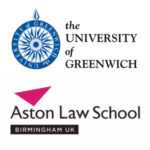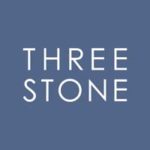Continue reading "Proprietary estoppel: Widening the net"
Proprietary estoppel: Widening the net


Continue reading "Proprietary estoppel: Widening the net"
Morgan J had held that the late Lim Lie Hoa (Madam Lim) had until her death in 2009 held the house, its proceeds of sale and other rights relating to it upon the trusts of a settlement dated 14 December 1985 signed by her and by the appellant Ong Siauw Ping (Ping), her son.
Ping had opposed the claim that the house was held upon the declared or any trust. The only issues raised by the appeal were: (i) whether Madam Lim made a declaration of trust in respect of the house; and, if she did, (ii) whether it was ‘manifested and proved’ by the writing requirements of s53(1)(b) ...
The claim was a claim dated 5 September 2016 by the claimants as personal representatives of the late Mr Veliko Aleksic (the deceased), who died on 24 October 2014, for construction of parts of the deceased’s last will. He acquired a house in London in 1960 and a house in Cardiff in 1971.
He left a holographic will, which was undated save for bearing the year ‘2012’. It was signed but there was no attestation clause. It did not provide for the appointment of an executor. The deceased’s estate was valued at £2,750,753, including three houses, one in Montenegro, one in Cardiff, and ...
The testatrix had two daughters, the first and second claimants. In July 2000, the testatrix and her husband made wills in favour of the survivor, and subject to that, in favour of the claimants in equal shares.
The husband died in May 2001. Between 2001 and 2004, the testatrix made 13 further wills. These progressively favoured the defendants (who were two of the grandsons of the testatrix and the partner of one of them), at the expense of the claimants. The last of these wills was made on 12 December 2014, when she made a further will under which the claimants took a legacy of £...

Continue reading "Wills: The perils of cutting corners"

Continue reading "Trusts: When is a ‘trust’ not a trust?"
B had been involved in litigation against A and the AP family (the litigation) from which he potentially stood to recover large sums of money. The claimant, G, was B’s long-term partner. In March 2012 the litigation deed was drawn up to reflect agreement between B and G regarding G’s entitlement to B’s assets (including the litigation). B subsequently lost his case against A and entered into settlement discussions with the AP family. The litigation agreement was a further document signed in September 2012 to reflect an agreement between B and G concerning her entitlement to any sums from...
This was an appeal against a declaration that H held only 50 per cent of the beneficial interest in the property. The property was registered in the name of S, the former husband of the respondent.
H and S were childhood friends who had formed a partnership for acquiring properties together in around 1998. H claimed that in 2001 he and S had agreed that H would provide funds to S to aid S to purchase the property, to be repaid within five years. The legal ownership was to be in S’s name only but H was to be the sole beneficial owner until he was repaid in full. Two documents...
The Dove Trust (the trust) was established by a declaration of trust dated 16 June 1983 for such charitable purposes as the trustees should in their discretion from time to time think fit. It was subsequently registered as a charity.
In 2004 a website for charitable giving called www.charitygiving.co.uk (the website) was established for the purpose of facilitating members of the public to make donations to the trust for the benefit of other charities or good causes of their choice. Donations which were charitable could then be augmented by gift aid, which the trust would claim sub...

Continue reading "Declarations Of Trust: Taking someone at their word"